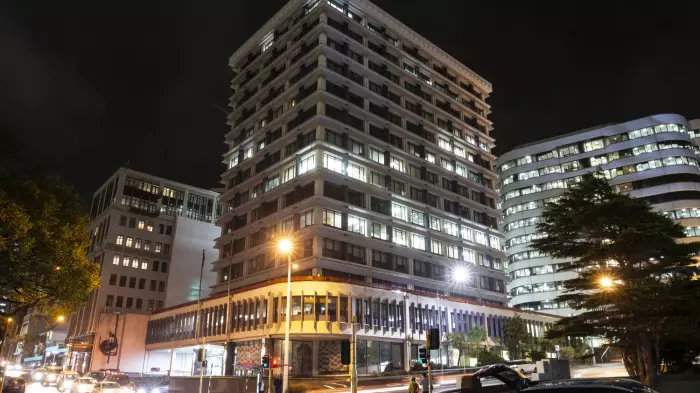Vector announces full year results
FLLYR
Mon, Aug 25 2025 08:30 am
Vector announces full year results and continued reliability and resilience investment
• Revenue from continuing operations, excluding contributions, is up 9% to $893.5 million.
• Group adjusted EBITDA(1) for continuing operations $401.1 million, up 16%.
• Group net profit after tax for continuing operations $154.7 million, inclusive of a $37 million impairment of the gas distribution network.
• Final dividend 13 cents per share(2).
• Group capital expenditure for continuing operations $470.1 million, down 6%.
• Deployment of GridAware to optimise asset inspections, the first tool to be deployed from our partnership with X (Google’s innovation lab) and Tapestry, its energy moonshot.
• 55% carbon emissions reduction achieved against a goal of 53.5%. This was set in 2020, to reach by FY2030(3).
Vector Group (NZX: VCT) today announced solid financial results, and continued investment into the reliability and resilience of the electricity network.
Vector Group Chief Executive Simon Mackenzie said, “The year’s financial result sees adjusted earnings for the group before interest, tax, depreciation and amortisation (adjusted EBITDA(1)), for continuing operations, up 16% to $401.1 million. Total capital expenditure for continuing operations was $470.1 million, down $29.1 million, reflecting a number of factors including the timing of large projects. Group net profit after tax was $154.7 million, inclusive of a $37 million impairment of our gas distribution business, following forecasts in our gas asset management plan that show total connections starting to decline from FY26, as a result of significant market uncertainty, scarcity of gas and rising costs. Following the impairment the carrying value of the gas distribution business is consistent with the estimated value of the regulated asset base”.
The board has determined an unimputed final dividend of 13 cents per share, taking the full year dividend to 25 cents per share. This represents an 85% payout of free cash flow, in the mid-point of the 70-100% range as stated in our policy. Shareholders should not interpret this year’s payout as being an indication that future dividends will be in the midpoint of the range.
“Our business portfolio has continued to evolve. The completion of the sales of Natural Gas Trading, Vector Ongas and our shareholding in Liquigas, are examples of successful transactions that align with the risk and future operating environment of each business. The completed transactions enable us to concentrate on the core strengths and demands of our regulated electricity and gas networks and explore growth opportunities such as through Vector Technology Solutions, or our investment in metering business Bluecurrent.
“On 1 August, after balance date for these results, Vector announced via the NZX the sale of HRV.
“We’ve seen some changes to our regulatory settings in the year. As of 1 April 2025, we entered into the new five-yearly regulatory cycle for electricity networks, as set by the Commerce Commission. This is known as DPP4. We’re well placed to continue our investment approach, which is to avoid committing to high levels of capital investment in areas where there is significant uncertainty, or to cover short demand peaks when there are other, less capital intensive ways to use available capacity and build network resilience.
“We’ve also seen some decisions announced by the Electricity Authority on connection processes. We support efforts to streamline and clarify these processes and we remain committed to advocating for reforms that are fair, efficient, and do not impose undue costs on existing customers.
“We await with great interest the release of the Frontier report which the Government has commissioned to help with its review into the electricity market. Vector has taken an active interest in the process and will continue to provide input into important issues such as security of supply, and an efficient market for customers.
“The DPP4 regulatory cycle for electricity distribution networks has seen electricity network assets being repriced by the Commerce Commission to reflect higher interest rates and COVID-19 inflation impacts. This has resulted in price increases, which we recognise is hard on all consumers, however in real terms our electricity lines charges remain very similar to what they were more than ten years ago.
“Our commitment to Auckland’s growth and electrification remains strong, and the region continues to grow despite the broader economic slowdown. While we’ve seen a softening in the rate of new connections this year, and fewer private electric vehicles being sold, we’re continuing to work closely with customers to ensure we understand, prepare for, and enable their evolving needs.
“In 2020, we set a target to reduce direct emissions (Scope 1 and 2, excluding electrical line losses) by 53.5% by 2030, aligned with the Science Based Targets initiative to limit warming to below 1.5C. This year we recorded a reduction of 55%, which is calculated against the businesses we have now(4). This result was driven by innovation in technology and processes, with successful initiatives now embedded in our operations. We’ll continue to focus on our emissions targets and we recognise there could be some volatility in maintaining and improving our overall emissions.”
Key financial and operational information
Business segment FY24 FY25 % change
Electricity
- Revenue excluding contributions $687.4m $762.2m +11%
- Adjusted EBITDA $295.1m $351.9m +19%
- Total connections 624,330 632,106 +1%
Gas Distribution
- Revenue excluding contributions $65.1m $67.2m +3%
- Adjusted EBITDA $44.8m $46.7m +4%
- Total connections 120,354 120,621 +0%
Footnotes
(1) EBITDA and Adjusted EBITDA are non-GAAP measures which the directors and management believe provide useful information as they are used internally to evaluate performance of business units, to establish operational goals and to allocate resources. Adjusted EBITDA excludes the capital contributions customers pay for new connections on the network. See the financial statements for further details or click on this link to see Vector’s policy.
(2) The dividend will be paid to shareholders who are on the register at 5 September, with payment made on 17 September.
(3) The target set in FY2020 was to reduce scope 1 and 2 emissions (excluding electricity distribution losses) by 53.5% by FY2030 from an FY2020 baseline. The emissions reduction target does not rely on any offsets.
(4) Due to the completion of the sales of Vector Ongas, our shareholding in Liquigas, and some natural gas trading contracts, our historic emissions inventory has been recalculated to exclude these emissions. This enables our year-to-year results to reflect our actual emission reductions. For more on the methodology, see our greenhouse gas emissions inventory report, at vector.co.nz/reports.
ENDS
Further details can be read in Vector’s annual report. This along with our climate-related disclosures report, and greenhouse gas emissions inventory report are available here: vector.co.nz/reports.
Investor contact
Jason Hollingworth, Chief Financial Officer, Vector
[email protected], 021 312 928
Media contact
Matthew Britton, Communications Manager, Vector
[email protected], 021 224 2966
About Vector
Vector is an innovative New Zealand energy company, delivering energy and communication services to more than 630,000 residential and commercial customers across New Zealand. Vector has a leading role in creating a new energy future through its Symphony strategy which puts customers at the heart of the energy system. Vector is listed on the New Zealand Stock Exchange with ticker symbol VCT. Our majority shareholder, with voting rights of 75.1%, is Entrust. For further information, visit www.vector.co.nz.




